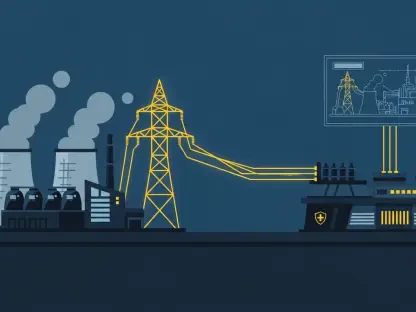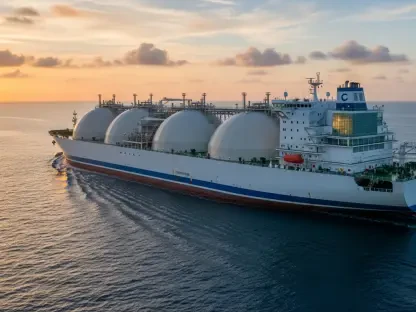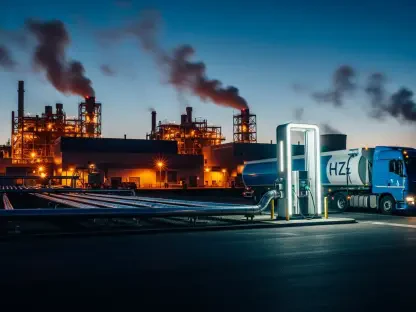Short introduction Today, I’m thrilled to speak with Christopher Hailstone, a seasoned expert in energy management and utilities, with a deep understanding of the geopolitical and economic intricacies of the oil and gas industry. With his extensive background in grid reliability and renewable energy, Christopher offers unparalleled insights into the recent agreement between eight oil companies, Iraq, and the Kurdish Regional Government (KRG) to resume oil exports from Iraqi Kurdistan. In this conversation, we’ll explore the details of this landmark deal, its implications for the region’s oil sector, the challenges still ahead, and the broader impact on global energy markets.
Can you walk us through the key elements of the recent agreement involving oil companies, Iraq, and the KRG to resume oil exports?
Certainly, Silvia. This agreement is a significant step forward for the oil industry in Iraqi Kurdistan. It involves eight international oil companies, alongside Iraq’s federal government and the KRG, coming to terms on restarting exports that have been stalled since March 2023. The deal focuses on allowing around 230,000 barrels of crude oil per day to flow through the Iraq-Turkey pipeline. Beyond just resuming exports, it aims to honor existing contracts and provide payment security for the companies involved. It’s a framework that not only addresses immediate needs but also sets the stage for longer-term cooperation.
Why is this agreement such a big deal for the oil industry in Iraqi Kurdistan?
This deal is crucial because it breaks a longstanding deadlock over the Iraq-Turkey pipeline, which has been a major bottleneck for the region’s oil exports. The suspension of this pipeline has cost the KRG and the companies operating there significant revenue. By reopening this route, it revitalizes production and injects much-needed economic activity into the region. It’s not just about the oil flow; it’s about restoring confidence in Iraqi Kurdistan as a reliable player in the global energy market, which could attract further investment.
How does the Association of the Petroleum Industry of Kurdistan, or APIKUR, fit into this agreement?
APIKUR plays a pivotal role as the umbrella group representing eight international oil companies that account for over 90% of production in the region. They’ve been instrumental in negotiating the terms of this agreement and ensuring that the interests of these companies are protected. APIKUR has stated that once the framework is fully signed and implemented, exports could restart within days. They’re also pushing for ongoing discussions with the KRG to address longer-term issues, like debt settlement, within 30 days of resuming exports.
I understand not all companies have signed on yet. Can you shed some light on why that is?
Yes, that’s correct. Two notable companies, Norway’s DNO and the UK’s Genel Energy, have not yet signed the agreement. While they’ve expressed support for the idea of restarting exports, they’re holding out for some adjustments to the proposed terms. Their main concern seems to be around the KRG’s arrears for past deliveries. They want clearer assurances or mechanisms to address these unpaid amounts before fully committing, which is understandable given the financial stakes.
Speaking of financial stakes, can you elaborate on the payment issues and how this agreement tackles them?
Absolutely. Payment security is a cornerstone of this deal. The framework ensures that international oil companies have some guarantee of being paid for their deliveries, which has been a sticking point in the past. Currently, the KRG owes around $1 billion in arrears to producers, with DNO alone claiming about $300 million of that. The agreement includes a plan for the KRG and the companies to meet within a month of resuming exports to work out a mechanism for settling these debts, which is a positive step toward rebuilding trust.
There are also some companies outside APIKUR that have backed this deal. How does their involvement shape the outcome?
That’s right. Local players like KAR Group and Forza Petroleum, who aren’t part of APIKUR, have also thrown their support behind the agreement. Their backing adds another layer of legitimacy and momentum to the deal. It shows that even beyond the major international players, there’s a broader consensus in the region to get exports moving again. Their involvement helps ensure that the deal isn’t seen as just benefiting foreign companies, but also aligns with local interests, which could ease political tensions.
What do you foresee as the biggest challenge in getting exports fully back on track?
I think the biggest hurdle will be resolving the lingering concerns of companies like DNO and Genel Energy regarding past dues and contract terms. If these issues aren’t addressed promptly, it could delay the timeline for resuming full exports, even if the majority are on board. Additionally, there’s the broader geopolitical context—Turkey’s appeal against the damages ordered by the International Chamber of Commerce could introduce uncertainty. While Turkey has signaled readiness to restart the pipeline, any legal or diplomatic snag could complicate matters.
Looking ahead, what is your forecast for the future of oil exports from Iraqi Kurdistan based on this agreement?
I’m cautiously optimistic. If the remaining companies sign on and the payment mechanisms are solidified, we could see a stable flow of 230,000 barrels per day in the near term, which would be a significant boost for the region. Over the longer term, this agreement could pave the way for more investment and even higher production levels, provided the KRG and Iraq’s federal government maintain this cooperative spirit. However, geopolitical risks and debt repayment challenges will remain key factors to watch. I believe this deal is a turning point, but sustained effort and dialogue will be essential to keep the momentum going.









